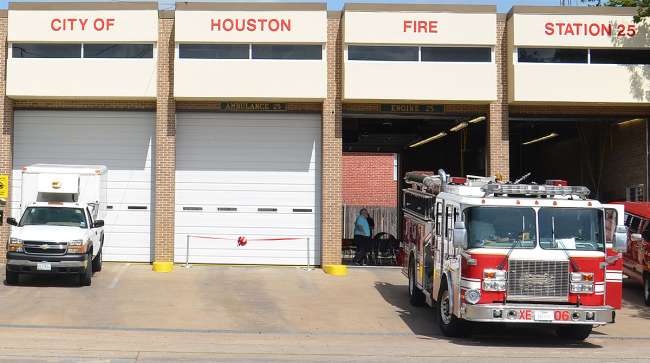Houston Receives $3.4M to Study Police-Fire Response

[Stay on top of transportation news: Get TTNews in your inbox.]
With roadway deaths rising in Houston, the city’s most recent federal grant focuses on getting first responders to the crash scene faster.
Federal officials Sept. 5 announced that Houston would receive $3.4 million for a project to study emergency response times in eastern portions of the city, part of $1 billion aimed at improving street safety nationwide. Transportation officials in Washington made the announcement, along with new estimates by the National Highway Traffic Safety Administration indicating roadway deaths in the first half of 2024 dropped 3.2% nationwide, compared to 2023.
“We should be energized by the fact that together we’ve reduced traffic fatalities for more than two years in a row now — but so much work remains,” Transportation Secretary Pete Buttigieg said in a statement.
Despite the improvement, Buttigieg said in remarks to reporters to outline the safety program that roadway incidents remain “at a crisis level in this country, comparable to gun violence.”
The Biden administration made the grants to more than 350 communities.
BIG NEWS: The Biden-Harris Administration announced over 350 grants to improve roadway safety and prevent deaths and severe injuries on America's roads.
These projects will make our streets safer for everyone. pic.twitter.com/hHttC0fs7M — U.S. Department of Transportation (@USDOT) September 5, 2024
Along Houston roads, 170 people died, inside or outside a vehicle, from January to June, compared to 151 for the first six months of 2023, according to crash statistics maintained by the Texas Department of Transportation. That is a 12.6 increase in road deaths, as the nation declined.
Safety advocates have called Houston’s roadway deaths a public health crisis, caused largely by the area’s reliance on automobiles for travel, fast streets and distracted or impaired drivers. Many have called for increased investment in sidewalks and intersections especially, as well as slowing vehicle traffic in neighborhoods.
Recent grants and federal funds awarded to Houston have focused on those areas, including planned redesigns of Shepherd and Durham, Telephone Road and sidewalks in the Kashmere Gardens and Gulfton areas.
This year the city’s winning application took a different tack. Houston officials applied for the grant in June, citing the effect stopped trains have on EMS, fire and police response times in the East End and adjacent communities.
“In summary, we’re hoping to improve emergency response times by routing police/fire and eventually motorists around train and vehicular traffic in East Houston,” said Jesse Bounds, director of the Mayor’s Office of Innovation and Performance.
In the application submitted to federal officials, Houston planners pitched “a complete congestion model” capable of “reducing delays in response to life-threatening crashes.”
Want more news? Listen to today's daily briefing above or go here for more info
Stopped trains have consistently congested local streets, as a lack of underpasses and overpasses keep cars and trucks stuck waiting for crossings to clear. While the city and others have worked with the freight railroads to reduce trains stopping traffic, incidents still occur, drawing frustration from many elected officials.
The study funded by the federal grant, spread over three years, will assess how to best route traffic around hazards and closed roads, and whether that leads to improved response times. About half the city’s estimated cost is for equipment and sensors along area roadways — notably at 32 intersection with a high number of incidents and 25 at-grade road crossings of the railroad tracks. In addition, $20,000 will be spent outfitting four fire stations with the monitoring equipment capable of helping them plot the preferred route.
The work is intended to augment plans to separate train and automobile traffic by building underpasses in key locations, also funded partially by different safety program awarded by the Federal Railroad Administration.
Distributed by Tribune Content Agency, LLC




